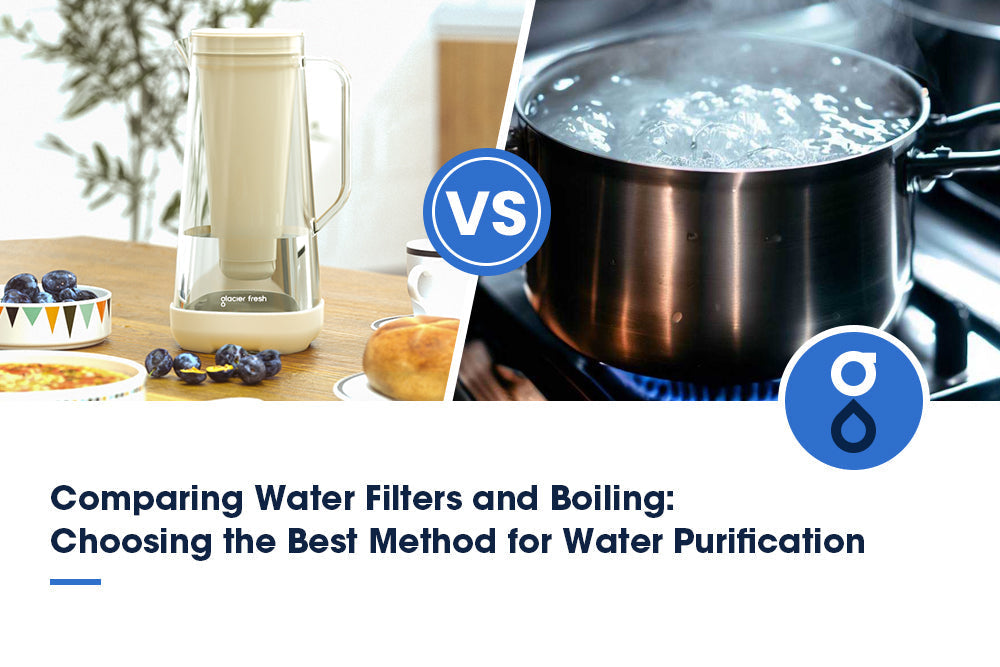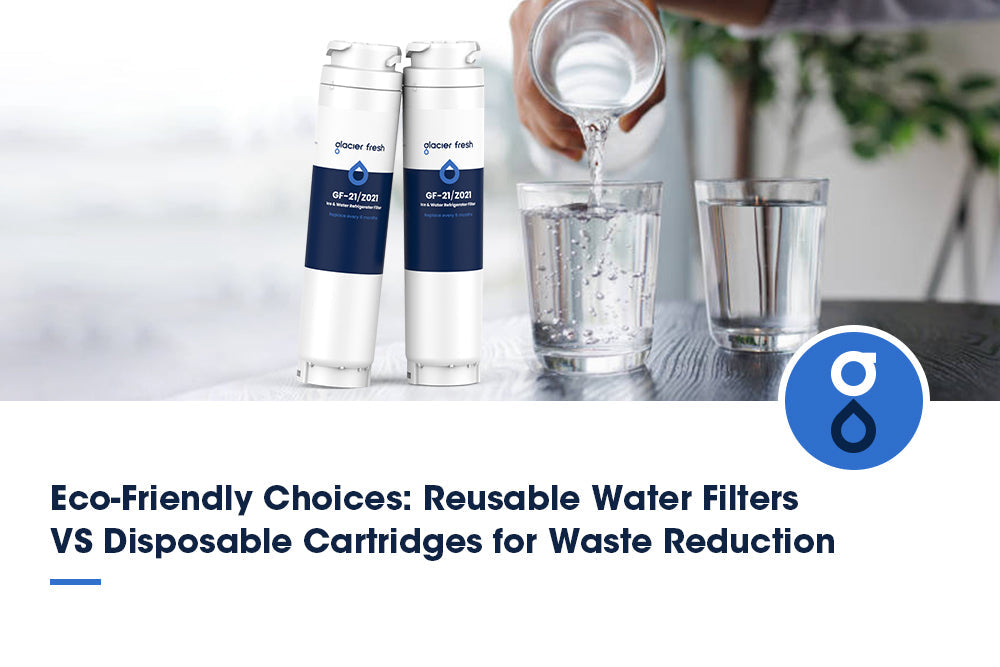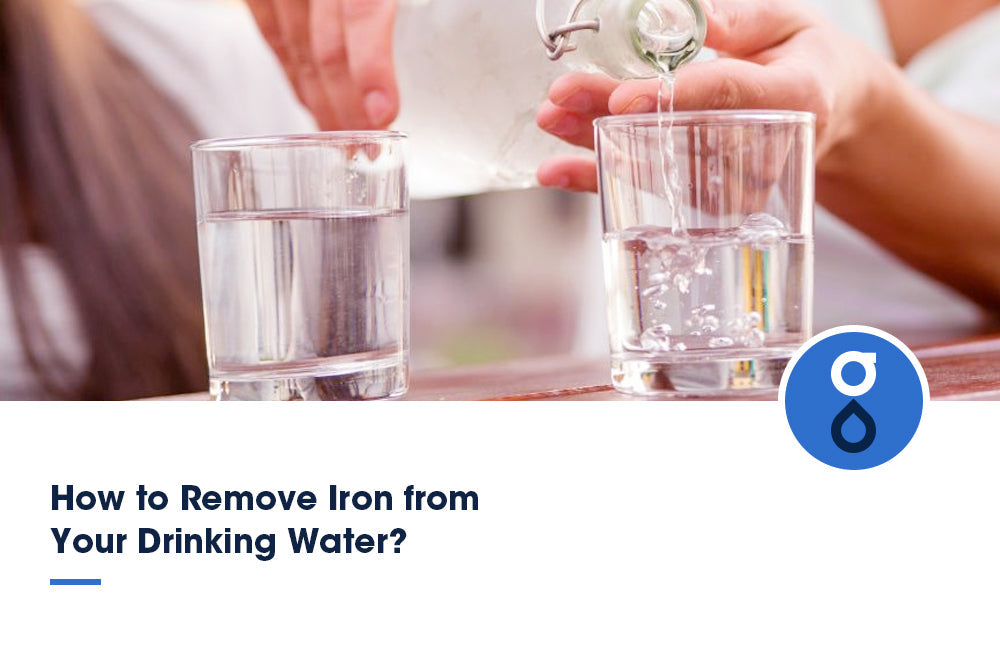Table of Contents:
What is water purification?
Why is water purification important?
Factors to consider when choosing a method for water purification
Water filter VS boiling: Which`s better for water purification
FAQs
Conclusion
Do you need help with the best way to purify your water? Imagine you're planning a camping trip and concerned about the water's safety in the nearby river. You want to make sure you choose the most effective method to ensure clean drinking water.
In this article, we will compare water filters and boiling as two popular methods for water purification. By examining each method's advantages and disadvantages, you can make an informed decision and choose the best method for your needs. So let's dive in and explore the world of water purification!
What is water purification?

Water purification is removing impurities from your water to ensure its safety and quality. One standard method is filtration, where water passes through a physical barrier that traps impurities like sediments, bacteria, and chlorine. Another method is distillation, which involves boiling water and collecting the condensed steam, leaving behind impurities. There's also reverse osmosis, where water is forced through a semipermeable membrane to remove contaminants.
The benefits of water purification are numerous. Firstly, it removes harmful substances such as bacteria, viruses, and parasites that can cause waterborne diseases. This ensures your water is safe for drinking, cooking, and other purposes. Purified water also tastes better, eliminating unpleasant odors and flavors caused by impurities. Furthermore, water purification can reduce the risk of certain health conditions, such as gastrointestinal illnesses and skin infections.
Why is water purification important?
Drinking contaminated water can lead to various illnesses, including diarrhea, cholera, dysentery, and typhoid fever. Water purification removes these harmful contaminants such as bacteria, viruses, parasites, and chemicals, ensuring your water is safe and free from potential health risks.
By purifying your water, you can significantly reduce the risk of contracting these waterborne diseases and safeguard your health and the health of your loved ones.
Moreover, water purification has a positive environmental impact. Water pollution, caused by industrial waste, agricultural runoff, and improper disposal of chemicals, can contaminate water sources and harm aquatic life. By purifying water, you reduce the demand for single-use plastic bottles, which helps to minimize plastic waste and its detrimental effects on the environment.
Factors to consider when choosing a method for water purification
Types and quality of source water
The presence of different types of bacteria, chemical pollutants, and waterborne diseases can vary greatly depending on the source of your water. For example, if your water comes from a well, it may be more susceptible to bacterial contamination due to its direct environmental exposure. On the other hand, if your water comes from a municipal supply, it may be treated with chemicals such as chlorine to kill bacteria.
The quality of your source water can also be affected by industrial activities or agricultural runoff, leading to chemical pollutants. Understanding the types and quality of your source water is crucial in selecting the most effective method like a glass water filter pitcher for water purification.
Wide range of contaminants to remove
Different types of water filters are designed to target specific pollutants such as bacteria, viruses, heavy metals, and chemicals. These filters use various technologies like activated carbon, reverse osmosis, and UV sterilization to remove these contaminants from the water effectively.
On the other hand, boiling water is a simple and effective method that can eliminate a wide range of contaminants, including bacteria, viruses, and parasites. It's also cost-effective as it requires no additional equipment or filters. However, it's important to note that boiling water may not remove certain chemicals or heavy metals.
Safety of the processed water
To ensure the safety of your processed water, it's crucial to test and monitor its quality regularly. This is important because processed water can pose health risks if not adequately purified. Here are four factors to consider when evaluating the safety of your processed water:
- Contaminant Removal: Ensure that your chosen purification method effectively removes many contaminants, including bacteria, viruses, and chemicals.
- Microbial Kill Rate: Look for a purification method that has a high microbial kill rate to minimize the risk of waterborne diseases.
- Certifications: Check if the purification method is certified by reputable organizations, such as NSF International or the Environmental Protection Agency (EPA), to ensure its effectiveness in safe drinking water.
- Maintenance and Replacement: Regularly maintain and replace the filters or components of your chosen purification method to ensure consistent water safety.
Water filter VS boiling: Which`s better for water purification
When deciding between a water filter and boiling as methods for water purification, there are several essential points to consider.
Effectiveness in removing contaminants
You may wonder how effective water filters and boiling are in removing contaminants. To help you understand the effectiveness comparison between the two methods, here are some key points to consider:
-
Filtration Process:
Water filters work by passing water through a physical barrier that traps impurities such as bacteria, viruses, and chemicals. This process helps remove a wide range of contaminants, providing cleaner and safer drinking water. -
Purification Efficiency:
Water filters vary in their efficiency, depending on the type and quality of the filter. Some filters, like reverse osmosis and gravity-fed water filter, are highly effective in removing contaminants, while others may have limitations in their purification capabilities. -
Boiling:
Boiling water is a simple and effective method to kill bacteria and other harmful microorganisms. It can eliminate most pathogens, making the water safe to drink.
However, boiling doesn't remove chemical pollutants or heavy metals that may be present in the water. -
Combination Approach:
For the best results, some people choose to use both water filters and boiling.
This combines the filtration process of the water filter with the pathogen-killing ability of boiling, providing an extra layer of protection against contaminants.
Convenience and ease of use
To determine which water purification method is more convenient and accessible, let's compare the convenience and ease of use between water filters and boiling.

Preservation of water quality

Water filters and boiling have different effects on the preservation of water quality, with one method being more effective in ensuring the cleanliness and safety of the water. When it comes to preserving water quality, consider the following:
-
Preservation methods:
Water filters physically remove impurities like bacteria, viruses, and chemicals.
Boiling kills microorganisms by raising the water temperature to a point where they can no longer survive. -
Water quality testing:
Both methods can improve water quality. Water filters are often more reliable in removing a wider range of contaminants. Boiling may not eliminate certain chemicals or heavy metals in the water. -
Environmental impact:
Water filters produce less waste compared to boiling. Boiling requires energy to heat the water and contributes to greenhouse gas emissions. -
Cost:
Both methods have upfront costs. Ongoing expenses can be higher with water filters due to the need for filter replacements.
Water taste and smell
When it comes to improving your water's taste and smell, water filters and boiling can be effective methods. Water filters use various water filtration methods to remove impurities and contaminants, which can significantly improve the taste and smell of your water.
On the other hand, boiling water is one of the oldest and simplest water purification techniques. The boiling process kills bacteria, viruses, and parasites that may cause unpleasant odors and tastes.
FAQs
Is using both a water filter and boiling necessary for optimal water purification?
To achieve optimal water purification, it's recommended to combine the use of a water filter and boiling. While both methods are effective on their own, using them together provides an extra layer of protection against contaminants.
Conclusion
In conclusion, water filters and boiling are effective methods for water purification. However, the choice between the two depends on various factors. Water filters are more convenient and efficient for everyday use. Boiling is a reliable method for emergencies or situations with high pollutants. Ultimately, the best method for water purification depends on individual needs and circumstances. Follow Glacier Fresh to find more water filtation solutions.


















